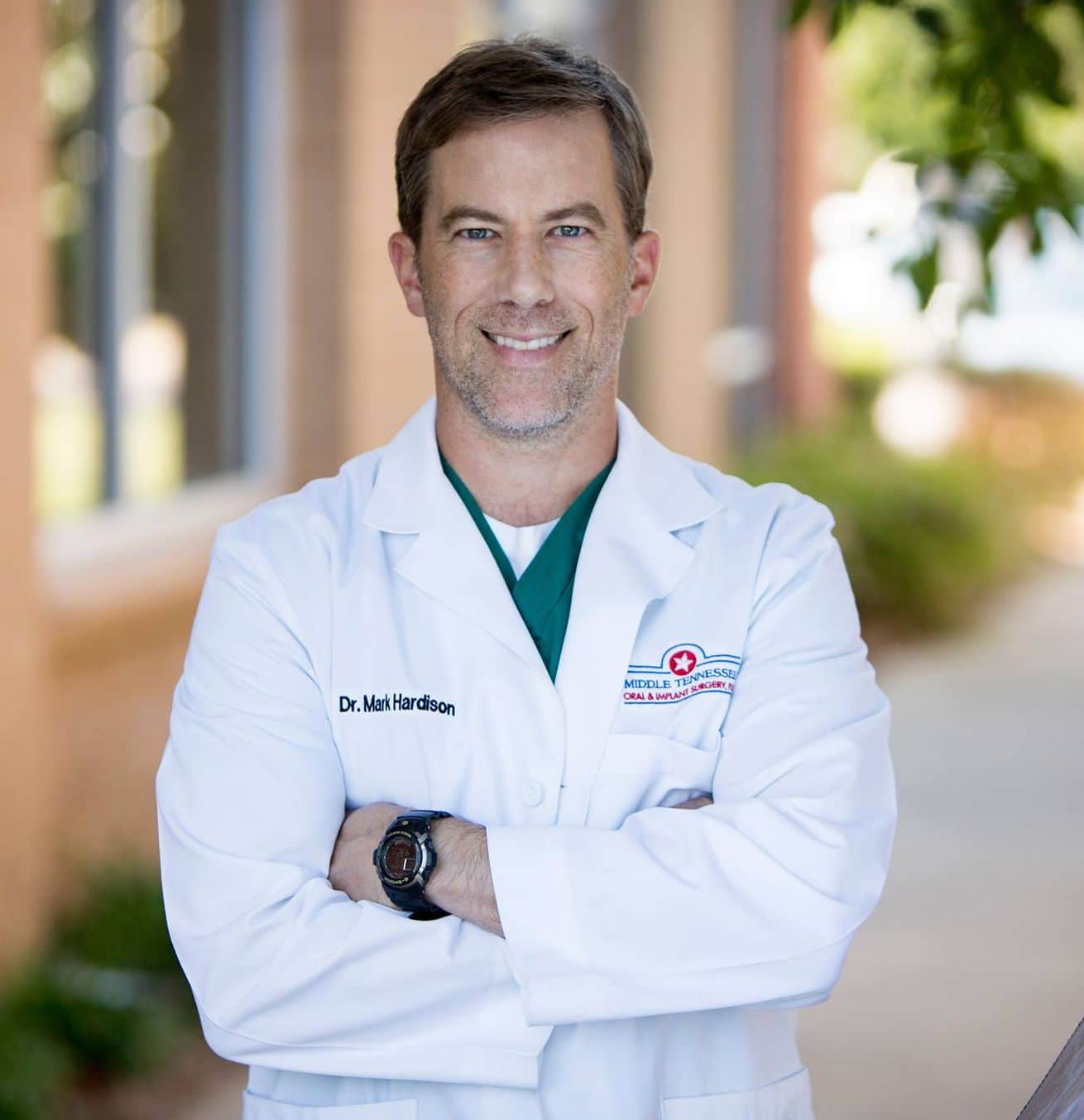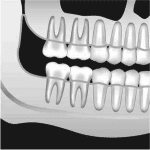Checkout Dr. Mark Hardison, DDS Watch Video
Dr. Mark Hardison is a native of Murfreesboro and graduated from Riverdale H.S. in 1988. He received his B.S. degree from The University of Tennessee in 1992 and his D.D.S. from The University of Tennessee, Memphis in 1996. He finished his specialty training from The University of Tennessee Medical Center, Knoxville in 2000. Dr. Hardison is board certified by The American Board of Oral and Maxillofacial Surgery. Outside the Office, Dr. Mark enjoys running marathons and spending time outdoors with his wife and two daughters.
Specialist Outstanding Service Award
Dr. Mark received the Specialist Outstanding Service Award during the 142nd Annual Session of the Tennessee Dental Association. Along with just one other doctor in Tennessee, Dr. Mark Hardison was honored for providing more charitable dental and oral surgery services than any other dentist in the state for Tennessee Donated Dental Services (DDS.) This is a project initiated by the National Foundation for Dentistry for the Handicapped and the Tennessee Dental Association. Its purpose is to provide free, comprehensive care for people who are permanently disabled, elderly and medically compromised who are unable to afford dental care.
Dental Implants
At Middle TN Oral and Implant Surgery, we genuinely care about each and every one of our patients. Please watch this short video to learn a bit more about our practice. The cost of dental implants will vary depending on your insurance carrier, call for more information.
When your general dentist recommends dental implants, ask them about Middle TN Oral and Implant Surgery.
Missing teeth can be an embarrassing and frustrating problem. Tooth loss affects your health and wellness by disrupting your speech and eating habits. Losing one or more teeth increases the potential for remaining teeth to become damaged, prematurely worn out, or lost. You may also experience headaches and/or jaw pain due to an unnatural or compromised bite. Fortunately, dental implants are a proven and reliable solution to restoring the health, appearance, and function of your teeth. Call our office to schedule an appointment and discuss the prices and affordability of your dental implant needs.
Oral Surgery for Dental Implants
Oral and maxillofacial surgeons receive specialized training to treat a variety of conditions affecting the face, mouth, and jaw. They are required to complete 4 to 6 years of training above and beyond that of a general dentist. Dentists refer patients to Oral Surgeons for specialized care and expertise.
Implant Surgery
Dental implants are artificial roots and teeth (usually titanium) that are surgically placed into the upper or lower jawbone. Due to biocompatible properties of titanium, a dental implant fuses with the bone and becomes a good anchor for the replacement tooth. A dental implant can be used for replacing single or multiple missing teeth. The teeth attached to implants are strong, stable, durable and natural looking – giving many patients the confidence to smile again.
Single & Multiple Dental Implant Replacements
When you need to have single or multiple teeth replaced, an oral surgeon may recommend dental implants. Implants are the time-tested and predictable solution to tooth loss. Replacing a missing tooth with an implant avoids cutting down neighboring teeth for a bridge and the inconvenience of wearing a removable device called a partial. Multiple implants are used when you need to replace a section of teeth. This can be restored with an implant-supported bridge, denture, or individual teeth. Implants are surgically placed in the jaws after teeth are extracted. Sometimes the implants are placed at the time of tooth removal, other times they are placed after the appropriate healing time. Once implants heal in the bone a custom bridge or single tooth is made for your individual needs. When healthy teeth are left undisturbed, you prolong the health and longevity of your remaining teeth. Implants also slow the natural loss of jaw bone that occurs when bridges or partials are used to replace missing teeth.
What are Wisdom Teeth?
Wisdom teeth, officially referred to as third molars, are usually the last teeth to develop and are located in the back part of your mouth. They usually complete development between the ages of 15 and 20, a time traditionally associated with the onset of maturity and the attainment of Wisdom.
What Are Impacted Wisdom Teeth?
Since the wisdom teeth are the last to develop, they usually do not have enough room to adequately erupt into the mouth and become fully functional and cleansible. This lack of room or space can result in a number of harmful effects on your overall dental and medical health. When this occurs, they are said to be impacted, indicating their inability to erupt into a position, which will allow them to function in the chewing process. A special x-ray of your mouth and jaws will be taken to determine if your wisdom teeth are impacted.
Facial Trauma Reconstruction
When facial injury or trauma requires surgical intervention, word our oral and maxillofacial surgeons will assess the extent of patient injury and the best plan of action to surgically repair the damage. If you or a loved one suffers a traumatic injury to the face or mouth, be sure to request that an Oral and Maxillofacial surgeon is called for consultation. With their extensive training in this surgical area, an OMS is most qualified to assess and consult in the case of these types of injuries.
Impacted Canines
After wisdom teeth, the maxillary cuspid or upper eyetooth is the second most common tooth to become impacted, because they are the first teeth that touch as jaws close. Eyeteeth play an essential role in the “bite” and can quickly cause discomfort in chewing and biting if impacted. The quality of the alignment of a patient’s natural chewing motion can be disrupted if there are any irregularities with these important teeth.
Oral Pathology
An oral and maxillofacial surgeon is trained and experienced in properly diagnosing and surgically treating cancer of the head, neck, and mouth. Most estimates suggest that an average of 42,000 Americans will be diagnosed each year with oral or pharyngeal cancer. Because oral cancer is often discovered late in its development, the mortality rate is particularly high. your general dentist or OMS is the individual to detect and assess oral cancer during routine examinations or other procedures.
Bone Grafting
When a patient’s jawbone is too soft or isn’t thick enough, a patient may require bone grafting before dental implant surgery. The primary reason for this is that the action of chewing exerts great pressures on the jawbone. If there is a lack of support for the implant, the surgery may fail. A bone graft can create a more solid base for the dental implant. There are several different bone-grafting materials available, including transplanted bone from another area of the patient. It may take up to six months for the transplanted bone to grow enough new bone to support a dental implant. If only minor bone grafting is needed, the procedure can often be done a the same time as the extraction of the tooth.






